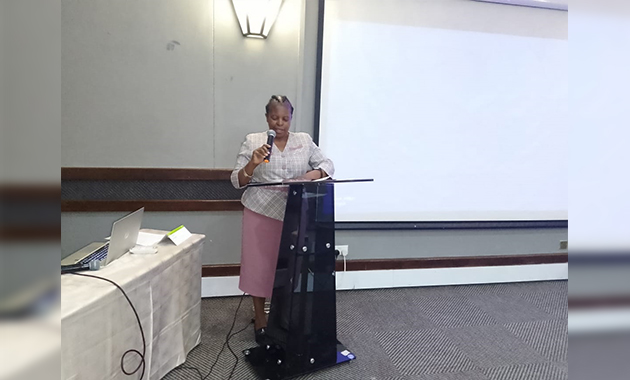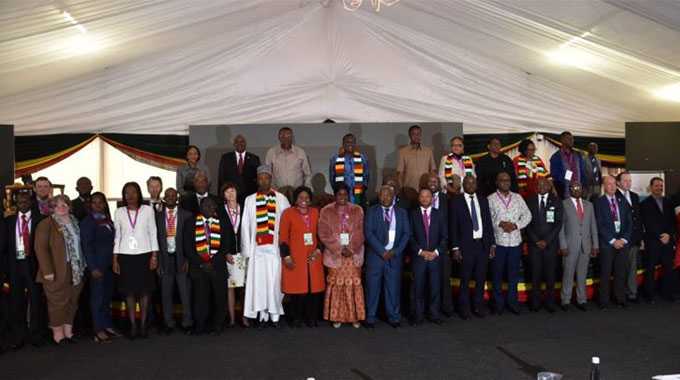Cross generational relationships fuel HIV\Aids spread among youth

Nqobile Tshili, Features Correspondent
ZIMBABWE has made serious strides in the fight against the HIV and Aids scourge which ravaged the continent at the beginning of the millennium.
Unlike at the turn of the millennium when HIV and Aids was seen as a death sentence, the disease is now pacified with most people able to take solace that in case they are infected they will access anti-retroviral drugs.
Some HIV and Aids activists have even gone to the extent of describing being HIV positive as a “health condition” instead of a disease.
Although the activists could have successfully pacified the disease to fight stigma and promote acceptance by those infected and affected by the disease, social analysts have said this has also increased dangers of people being reckless in their sexual behaviours, indulging in unprotected sex and contracting HIV.
Some of the successes that the country has made include providing medication for children who were born HIV positive and they can live a long healthy life.
The Ministry of Health and Child Care, Zimbabwe HIV Estimates and Projections Report 2017 shows that approximately 77 000 children and 69 000 adolescents are living with HIV.
It is celebrated in the country that children born with HIV can live a healthy life, concerns have however been raised over behaviours of adolescents in general.
The age group, commonly referred to as “ama2000” using the street language to refer to teenagers born after year 2000, have been synonymous for hosting the wild Vuzu parties characterised by intense sex orgies, drug and alcohol abuse, exposing themselves to HIV.
The nature of Vuzu parties has been of concern to parents, health experts and law enforcement agents. This comes amid new revelations that some families have closely guarded secrets where children born with HIV are not told of their ailments.
Zimbabwe National Network of People Living with HIV (ZNNP+) national chairperson Mr Sebastian Chinhaire said it is still a challenge for some parents and guardians to disclose to children that they were born HIV positive.
“First and foremost relatives do not inform children who were born positive of their status. Some of them even tell them that they are taking medication for other illnesses. But eventually the children get to know especially when they are teenagers which affects them psychologically. But those who get counselling get empowered to live positively with HIV. However, the problem starts when they start to date, they don’t want to disclose, they don’t even want people to know that they are positive,” said Mr Chinhaire.
He said what was worrying is that these youths might, just like other teenagers, be tempted to indulge in sexual activities.
A Bulawayo-based organisation that deals with over 3 000 children who were born with HIV, Million Memory Project Zimbabwe (MMPZ) shared Mr Chinhaire’s concerns over non disclosure which can even expose them to re-infections.
MMPZ director Mr Trevor Chirimambowa said some of the children born positive also suffer from low self-esteem which makes them vulnerable to peer pressure.
“In most cases you will find out that they really want to be disclosing their status but they end up not disclosing because people run away from them when they reveal their status,” said Mr Chirimambowa, adding that Vuzu parties could have influenced unsafe behaviours among teenagers.
“The danger of someone who is not confident, who has low self-esteem is that they can easily fall to peer pressure. This could result in disasters that they will indulge in something that exposes them and the others to HIV. The danger is not only on those who are negative, but a positive person who indulges in unprotected sex risks re-infection. One will get a viral strain which is non-responsive to medication.”
He however was quick to point out that no one has a responsibility of protecting another person from HIV infections.
“We want to run away from a mentality that if someone is infected, they are responsible for other people’s health. The moment we portray that, we are making people who think they are negative think they should be protected by those who are positive. What we want is that everyone should protect themselves,” he said.
Unsafe sexual behaviours are not just a concern to activists as health experts have also observed an increase in the number of teenagers contracting sexual transmitted infections.
Experts say those who were born negative are also contracting the disease.
Mpilo Central Hospital clinical director Dr Solwayo Ngwenya said he has noted with concern the increase in new infections among teenagers who were born HIV negative.
He said minors are being reckless as they seek to quench their sexual urge, exposing themselves to HIV.
“I’ve seen incidents of people being infected, young age groups and teenagers. I don’t know why they are losing it. These aren’t people who were born with HIV. These are people who are reckless and get infected. That is why we are losing the fight against HIV and Aids, people are still reckless 30 years down the line,” said Dr Ngwenya.
He said it was fatal thinking for individuals to assume that all teenage virgins are HIV negative hence indulging in sex with them.
Dr Ngwenya said everyone should take responsibility for their sexual behaviours and practise safe sex. However, despite education on safe sex, cases of teenagers indulging in unprotected sexual activities, is still very prevalent.
In 2017, Primary and Secondary Education Ministry statistics showed that more than 4 500 girls had dropped out of school due to pregnancy and early marriages.
Chairperson of the Parliamentary Portfolio Committee on Health and Child Care, Dr Ruth Labode recently stirred controversy after her committee recommended that children from 12 years of age enjoy free access to family planning service as a way to prevent early marriages and teenage pregnancies.
Dr Labode said the nation should accept that minors were indulging in sexual activities and address some of its problems.
The National Aids Council (Nac) is on record saying that cross generational relationships were also spreading HIV and Aids.
Older people have been blamed for infecting youths with HIV as they would have had many sexual partners in their lifetime as compared to youths.
A sociologist Mr Sethule Senda said the aspect of HIV positive teenagers indulging in sexual activities presents new challenges to cross generational relationships.
“There is general societal consensus that older men prefer having sex with youthful lovers. And these men have been blamed for transmitting HIV and Aids to young people. But with some of these children who were born positive starting to be sexually active, we are likely to see a bottom up transmission of the HIV,” said Mr Senda.
“An older person may have a relationship with a young person, behave recklessly and indulge in unprotected sex with these youngsters because of the firm belief that they can’t be positive.”
He said this would result in older people getting HIV from their youthful partners and transmitting it to their older sexual partners especially those who are already married.
Mr Senda emphasised that while the country has made significant progress in fighting the HIV and Aids scourge, remaining faithful to one sexual partner and correctly and consistently using protection should remain top to prevent new infections as vision 2030 is still achievable.
– @nqotshili











Comments